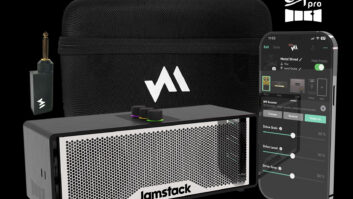WASHINGTON, D.C. — While majap makers can breathe a sigh of relief over federal energy efficiency mandates, the next regulatory battle, over stricter environmental controls, could be waged on the state and global levels.
That was the warning sounded by the Association of Home Appliance Manufacturers during its annual meeting here earlier this month. In a session addressing priority regulatory issues facing the industry — an AHAM meeting tradition — the association’s Larry Wethje, VP engineering services; government relations counsel Charles Samuels and Wayne Morris, VP of the portable appliance division, outlined future governmental challenges and possible industry responses.
The good news, Wethje said, is that Department of Energy (DOE) standards have “reached mature levels” and that the appliance industry has been successful in reducing carbon dioxide emissions and developing products that will realize significant energy and water savings. “We’ve done more than our fare share,” he noted, compared to other industries like the automotive sector, which has seen a decrease in fuel efficiency from a peak in 1987.
Going forward, Wethje predicted appliance manufacturers can expect “a lull in DOE standards,” as the agency turns its attention to energy usage by consumer electronics products and refinements in test procedures. He warned, however, of a “global proliferation of energy standards patterned after U.S. programs,” while individual states, beginning with California, Florida and Texas, could attempt to preempt federal energy standards for major appliances.
AHAM, he said, would continue to argue for product differentiation within the marketplace in order to preserve consumer choice and to press for revised test procedures on a product-by-product basis, rather than a complete overhaul of testing protocol.
More ominous, suggested attorney Samuels, is a forthcoming tide of substance bans and takeback regulations, which will begin popping up in Europe during the next two years and then “flow through the world” — America included.
The substance bans will likely target lead and cadmium, Samuels said, and would force manufacturers to contain the metals, “prove that we’re using them responsibly,” and search for alternative substances. Vendors would also be made responsible for recycling old appliances when new ones are installed.
Domestically, AHAM anticipates state-level recycling legislation and takeback proposals, as well as mandates to engineer mercury out of older models. “We will be taken to task in the U.S. to demonstrate the safety of our products to the environment,” Samuels said.
On a positive note, Samuels noted that the industry “is maintaining a smooth transition” from the HCFC’s used in room air conditioners and refrigerator insulation to more environmentally friendly HFC’s, thereby allowing for sufficient supplies during the changeover.
He added that the best way for the industry to address the new recycling regulations is by combating “emotional reactions” with facts. For example, more than 80 percent of white goods are already being recycled in the United States by installers and distributors without mandatory takeback legislation, he argued, and very little in the way of fluorocarbon emissions are actually leaked from refrigerator foam upon disposal. AHAM’s research arms are presently gathering facts on all aspects of appliance recycling to gird the industry for the coming challenges, he said.
Finally, portable appliance division VP Morris warned of an “internationalization of product safety issues” in the wake of the Firestone tire firestorm, and he urged manufacturers to take a more active role in writing IEC international test procedure standards. “If we’re not there to help write the standards, they’ll be written for us,” he opined.
AHAM will respond to these challenges, Morris said, by:
- “Grounding situations in reality and pursuing the rule of reason with real numbers and sound technical data, rather than conjecture”;
- Forming partnerships with other trade associations;
- And increasing its participation in IEC committees and code panels and bodies.
The good news, Morris added, is that the Bush Administration “is pro free trade, pro exports and will support U.S. manufacturers” on such issues as tax credits. “The time is right,” he said, given the budget surplus and the pro business sentiment within the executive and legislative branches. “We have the resources, and we will go out and get it.”












